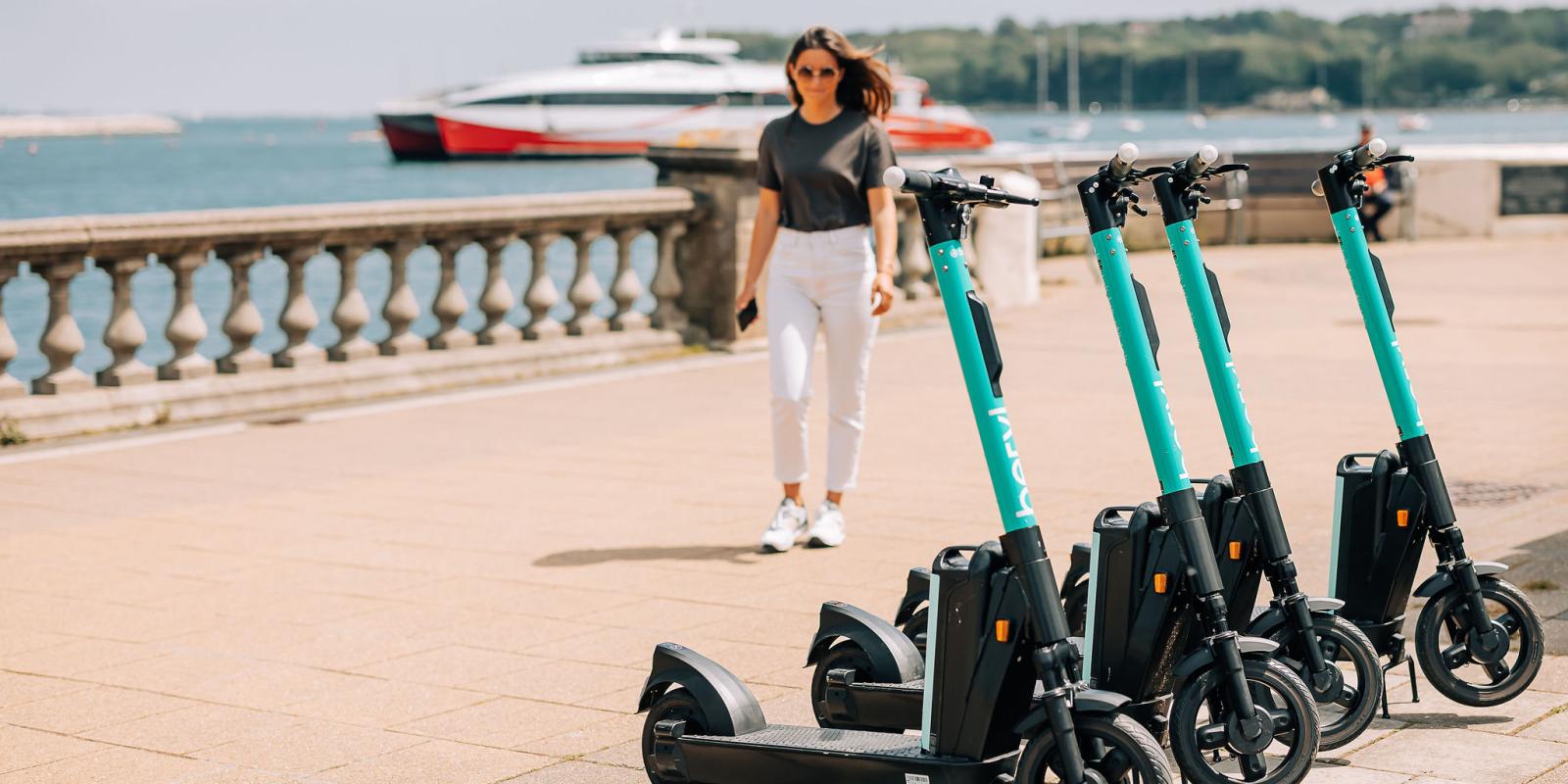Using digital rehearsal technology known as Social Digital Twin, the project will aim to help the Beryl-operated scheme to increase vehicle availability at the most convenient spots, while reducing operational costs and carbon emissions.
Developed by global tech and business solutions firm, Fujitsu, the new technology combines behavioural economics models and AI, allowing for simulations that mirror the behaviour of people in the real world. The simulations can not only reproduce biased behaviours, including overestimation of losses, but also indirect factors such as weather.
This enables them to more accurately predict the impact of initiatives and incentives on people’s transport choices, such as offering discounted fees for users who return e-scooters to specific bays.
It will also be able to more accurately predict how changes to transportation will affect operating costs and contribute towards reducing Beryl’s overall carbon footprint.
Beryl’s Chief Technology Officer, Sacha Manson-Smith, said: “We’re really excited to be working alongside an industry leader, using the latest simulation technology to help boost the efficiency of our schemes and significantly improve the user experience.
“Social Digital Twin will help Beryl to accurately predict how changes in human behaviour interact with evolving conditions in the environment, providing us with even higher levels of forecasting accuracy.
“We can use this extra knowledge to introduce scheme improvements that support our aim of encouraging as many people as possible to take up sustainable transport options.
“As a B-Corp registered company, we constantly monitor and evaluate our environmental impact and such accurate forecasting can also help us develop ways to further reduce it.”
Fujitsu Research’s Fellow and Head of Converging Technologies Laboratory, Daiki Masumoto, said “Fujitsu is committed to initiatives that build trust in society through innovation and our new ‘digital rehearsal’ technology is an example of how we can help better inform public policy and business planning.
“The trials on the Isle of Wight use digital rehearsal technology to test in advance the effects of people switching from cars to e-scooters. Our ultimate aim is to bring business benefits to Beryl, reduce the damaging environmental and social effects of car use, inform transport policy on the Isle and positively contribute to the Isle of Wight’s wider economy.
“In the future, Fujitsu plans to leverage the results of this project to support the sustainability transformation (SX) of mobility service providers and contribute to the realisation of a sustainable, fair, and diverse society through converging technologies that combine computer sciences with knowledge from the humanities and social sciences.”
This is part of wider initiatives which Fujitsu is taking as a Lead Technical Partner for National Digital Twin Programme, which aims to develop techniques to use Digital Twin models to benefit society, the economy, business and the environment, supported by HM Treasury. The programme is running a demonstrator work in Isle of Wight which is a fundamental element of the socio-technical change aspects of the programme.
The first test simulations using Social Digital Twin will be run on the island in May, with a more comprehensive programme to follow over the summer. The island was chosen due to its geographically isolated location.
The model will use statistical data such as the population by area on the Isle of Wight and open data including weather data of the island, data on movement of people between specific areas of the island (including time of movements), as well as data on the movement of e-scooters provided by Beryl. It will not use personal data.
Run in partnership with the Isle of Wight Council, the Beryl e-scooter scheme is one of a number of Department for Transport-sanctioned trials currently being run across the UK. It launched on 12 November 2020 and, since then, has generated over 133,000 journeys across more than 423,000 kilometres.
Feedback from users tells us that almost 28% of those journeys have replaced road transport journeys, including driving and or being a passenger in a car, van, taxi or motorbike.
According to industry calculations, that has saved approximately 22.5 tonnes of harmful CO2 emissions from entering the atmosphere.
For more information on Beryl’s shared e-scooter scheme on the Isle of Wight, visit beryl.cc/scheme/isle-wight
“We’re really excited to be working alongside an industry leader, using the latest simulation technology to help boost the efficiency of our schemes and significantly improve the user experience."
